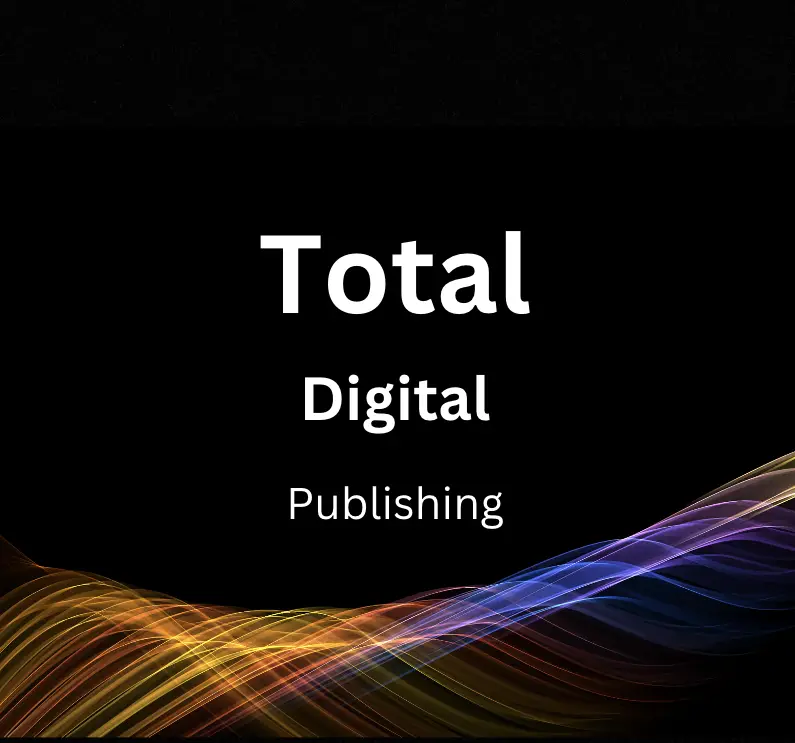In the digital landscape, the significance of search engine optimization (SEO) cannot be overstated. At the heart of successful SEO strategies lies an often underappreciated element: keyword research. This essay will delve into the world of keyword research, exploring its importance in driving organic traffic, explaining integral concepts such as search intent and long-tail keywords, and providing a comprehensive comparison of popular keyword research tools. It will also offer a step-by-step guide on using these tools effectively for SEO campaigns and discuss various metrics to track keyword performance and improve SEO efforts in the future.
Understanding Keyword Research
One essential aspect of search engine optimization (SEO) is keyword research, which plays a vital role in driving organic traffic to your website. By understanding what your target audience searches for and optimizing your content accordingly, you can make your website more visible and accessible to users searching for relevant information or products. This increased visibility can lead to higher rankings in search engine results pages and ultimately lead to more visitors and potential customers.The concept of search intent is crucial to effective keyword research. By taking into account the reason why users conduct specific searches, you can create content that better aligns with their needs and expectations. This can lead to higher click-through rates and better user engagement. For instance, a user searching for “how to tie a tie” is likely looking for step-by-step instructions or video tutorials, while someone searching for “best ties for a job interview” is looking for purchasing options and style recommendations. Incorporating these search intents into your content creation process can help you reach and satisfy your target audience.Long-tail keywords represent an influential part of modern SEO practices. These are longer, more specific keyword phrases that users often search for when they have a clear idea of their needs. Although they have lower search volumes compared to more generic keywords, long-tail keywords tend to have higher conversion rates as they often indicate a user’s intent to purchase or an advanced stage of the research process. For instance, a user searching for “best noise-canceling headphones for studying” is closer to making a purchase than someone searching for just “headphones.” Targeting long-tail keywords in your SEO and content strategies can help you reach a more engaged and valuable audience.In the quest for the best keyword tool for SEO, it’s essential to find one that provides insights into search intent and long-tail keywords, as well as traditional metrics such as search volume and competition. Tools like Google Ads Keyword Planner, Ahrefs, and SEMrush can assist you in identifying valuable keyword opportunities that align with your target audience’s needs and preferences. These tools also provide insights into your competitors’ keyword targeting and ranking strategies, allowing you to refine your SEO approach and stay ahead in the ever-evolving digital landscape.Optimizing your website’s organic search performance is crucial, and creating a comprehensive keyword strategy plays a vital role in this endeavor. By focusing on search intent, long-tail keywords, and leveraging the right keyword tool, you can develop targeted and relevant content tailored to your audience’s needs while achieving higher search engine rankings. This approach integrates understanding your users’ motivations, optimizing your website with appropriate keywords, and keeping a close eye on industry trends and competitor activities for a more effective and robust SEO strategy.

Features of an Ideal Keyword Tool
When selecting the ideal keyword tool for SEO, considering search volume as a critical feature is essential. A keyword tool that provides accurate and up-to-date search volume data ensures you are targeting keywords with a significant audience. Search volume represents the number of times a keyword is searched within a specific time frame, usually a month. By comprehending search volume, you can pick keywords based on their relevance to your site’s content and their potential to attract more visitors.
Keyword difficulty is another essential feature to look for in a keyword research tool. It illustrates how hard it is to rank for a particular keyword due to the existing competition. A reliable keyword tool should provide an accurate keyword difficulty score, which enables you to evaluate your chances of outranking competitors and achieving a higher position on search engine results pages (SERPs). This information is invaluable in making informed decisions on which keywords to target, ultimately leading to better SEO results.
To better understand how a keyword performs over time, search trends should be a feature of your chosen tool. Search trends analyze historical search data to identify patterns and fluctuations in the keyword’s popularity. This insight provides a more in-depth understanding of the keyword’s demand and helps to anticipate any changes in seasonality or market interest. By monitoring these trends, you can make strategic decisions about which keywords to focus on and when to do so to maximize traffic potential.
Related keywords are equally important in a keyword tool for SEO, as they present you with additional keyword ideas that are semantically similar to your primary keyword. These related keywords can reveal opportunities for expanding your site’s topical relevance and capturing broader audience segments. By incorporating these related keywords into your content, you increase the chances of attracting more organic traffic and better serving your target audience’s needs.
Search intent analysis is another critical aspect of an ideal keyword tool. A tool that offers insights into the search intent behind specific keywords allows you to create content that meets the needs and expectations of your audience. Understanding user intent helps improve your content strategy and ensures that your content aligns with the purposes of those searching for specific keywords. In turn, this contributes to higher user engagement and satisfaction, which can positively impact your site’s SEO performance.
In order to find the best keyword tool for SEO, it is essential to prioritize features such as search volume, keyword difficulty, search trends, related keywords, and search intent analysis. Utilizing these vital insights will enable you to create a solid SEO strategy that not only drives organic growth but also effectively captures the attention and business of your target audience.

Top Keyword Research Tools
A popular and widely-used keyword research tool is Google Keyword Planner. This tool offers valuable information, including search volume, trends, and competition data for specific keywords. Although it is a free tool with some limitations, it still serves as a beneficial resource for discovering high-potential keywords that can drive organic traffic. Google’s extensive database makes it easy for users to quickly compare search terms, get suggestions for related keywords, and estimate search volume in particular regions.
Another top contender in the field of keyword research tools is SEMrush, a comprehensive platform that provides insights into the performance of your chosen keywords, as well as competitor analysis and domain analytics. While this tool requires a subscription, its robust features can greatly aid in optimizing your website by discovering new and relevant keywords, suggesting long-tail keyword options, and providing ample data on trending topics. Additionally, SEMrush’s capabilities also extend to backlink audits and recommendations for link-building strategies.
Ahrefs is another powerful paid keyword research tool known for its extensive database of backlinks and domain analytics. By comparing the keywords and tactics used by competitors, Ahrefs empowers users to identify untapped keyword opportunities and improve their SEO strategies. The platform also provides critical information about keyword performance, such as search volume, keyword difficulty, and estimated organic traffic. With its easy-to-understand user interface, Ahrefs can tailor the level of detail provided for both beginners and advanced users, making it a versatile choice for any SEO campaign.
Moz, a well-respected authority in the SEO world, offers its own keyword research tool called Moz Keyword Explorer. This tool offers a plethora of information on keyword metrics, search intent, and estimated click-through rates. Moz Keyword Explorer also goes beyond basic keyword data by providing users with valuable insights into the competitive landscape and organic search engine results, helping users prioritize which keywords have the highest potential for success. Furthermore, the tool’s detailed SERP analysis and proprietary ranking score allow users to target specific keywords based on their potential to drive high-quality organic traffic.
Ubersuggest is a freemium keyword research tool developed by renowned digital marketer Neil Patel. This tool simplifies the keyword research process by providing suggestions based on user input alongside essential keyword metrics, such as search volume, competition, and seasonal trends. Ubersuggest also goes a step further in aiding your SEO efforts by providing content ideas, and backlink data for your selected keywords, along with historical trends and competitors’ top pages. Although there are optional paid plans for this tool, the free version offers a substantial amount of information, making it perfect for those looking to improve their SEO without breaking the bank.
In the world of search engine optimization (SEO), it’s critical to utilize top-notch keyword tools to help you succeed in your digital marketing efforts. By doing extensive research and considering factors such as your target audience, budget, and required level of detail, you can make an informed decision about the best keyword tool to meet your specific needs and objectives.

Using Keyword Tools Effectively
Keyword research tools are the foundation of any successful SEO campaign, as they allow you to identify the most relevant keywords to target and enhance your content’s visibility on search engine results pages (SERPs). Among the industry-leading keyword research tools for SEO are Google Keyword Planner, SEMrush, Ahrefs Keywords Explorer, Moz Keyword Explorer, and KWFinder. Understanding each tool’s unique features and, then selecting the one that best aligns with your requirements, is key to improving your website’s organic traffic and overall SEO performance.
By leveraging these tools, you can uncover hidden opportunities for your website and gain an edge over your competitors.
When commencing your keyword research, start by brainstorming a list of potential keywords related to your niche. Use these as seed keywords and input them into your chosen keyword tool to get suggestions and data on their search volume, competition level, and relevancy score. This information will help you identify which keywords have the optimal balance of strong search volume and low competition to target with your SEO strategy. Remember that long-tail keywords – those with three or more words – often have lower search volume but are more targeted and easier to rank.
Once you have compiled a list of target keywords, prioritize them based on their relevancy to your website content, competition, and search volume. Your chosen keywords should match the search intent of your target audience, have a moderate search volume and low competition to maximize your chances of ranking on the first page of SERPs. Avoid targeting the same keywords as your competitors, as this could lead to keyword cannibalization, leading to lower rankings for both websites.
After you have prioritized your list of target keywords, integrate them strategically into your website’s on-page and off-page optimization efforts. On-page optimization involves incorporating these target keywords into your website’s content, headings, meta descriptions, title tags, and image alt tags. Be careful not to over-optimize by stuffing your content with too many instances of the same keyword, as this could lead to penalties by search engines. Instead, focus on creating high-quality, informative content that engages and provides value to your readers while naturally including your target keywords.
Off-page optimization, on the other hand, consists of earning high-quality backlinks to your website with your target keywords as anchor text. When other reputable websites link back to your content using related keywords, search engines perceive your website as relevant and authoritative in that particular niche. To acquire these valuable backlinks, conduct outreach campaigns, create guest posts on industry-related blogs, and engage with influencers in your niche. As you continue to use keyword research tools and strategically target the right keywords, your website will benefit from increased organic traffic, a crucial factor in your overall SEO success.

Measuring Keyword Performance
One essential aspect to consider in your search engine optimization (SEO) strategy is keyword performance, as it helps identify the effectiveness of particular keywords in driving organic traffic to your website. To become informed on the best keyword tool for SEO, utilize various resources such as online reviews and expert recommendations. These tools will enable you to find and analyze the right keywords to enhance your website’s visibility and to seamlessly connect with your target audience, ultimately leading to a successful SEO campaign.
There are several metrics used to track keyword performance, including keyword rankings, organic traffic, click-through rates (CTR), and conversions.These metrics provide insights on which keywords are driving the most traffic and, ultimately, success in increasing online visibility and generating revenue.Keyword rankings refer to the positions that specific keywords hold on the search engine results pages (SERPs). By monitoring the rankings, SEO professionals can evaluate the effectiveness of their content and link-building strategies and make necessary adjustments to improve their website’s performance. A higher ranking typically leads to more visibility for the website and an increased likelihood of attracting organic traffic.Organic traffic refers to the number of visitors that arrive at a website through non-paid, search engine-driven means. This metric helps assess the success of SEO efforts and the overall value of the selected keywords. Higher organic traffic indicates that the website is successfully attracting users from search engines with relevant keywords, which often results in more extended user sessions, better engagement, and ultimately conversions.Click-through rates (CTR) provide insights into the percentage of users who click on a specific listing in the SERPs. A high CTR implies that a website’s meta title, description, and URL successfully entices users to click through and explore the content. On the other hand, a low CTR suggests that the website’s metadata may not be engaging enough to stand out in the SERPs. By optimizing the metadata to better fit with the target keywords and audience preferences, it may be possible to increase the CTR and drive more traffic to the website.Conversions are another crucial metric for measuring keyword performance, as they indicate the percentage of website visitors that complete a desired action, such as filling out a form, making a purchase, or subscribing to a newsletter. By tracking conversions and assessing the conversion rate of specific keywords, it becomes easier to determine the overall effectiveness of SEO efforts and potential areas to redirect resources more efficiently.In conclusion, tracking keyword performance using metrics such as keyword rankings, organic traffic, click-through rates, and conversions provides valuable information that can be leveraged to improve existing SEO strategies continuously. By regularly evaluating these metrics and adjusting SEO tactics accordingly, it becomes more feasible to remain competitive in the ever-changing landscape of search engine optimization, ultimately leading to higher online visibility and business success.

As we have seen, investing time and effort into keyword research is fundamental to the success of any SEO campaign. By understanding the various aspects of keyword research and adopting the right tools, digital marketers can make informed decisions, target the most relevant and valuable keywords, and ultimately drive higher organic traffic to their websites. Moreover, by leveraging key performance metrics, they can continuously refine their strategies and stay ahead of the competition in the ever-evolving world of SEO. Therefore, mastering the art of keyword research and using the best tools available will undoubtedly help you steer your website towards the top of the search engine rankings.

